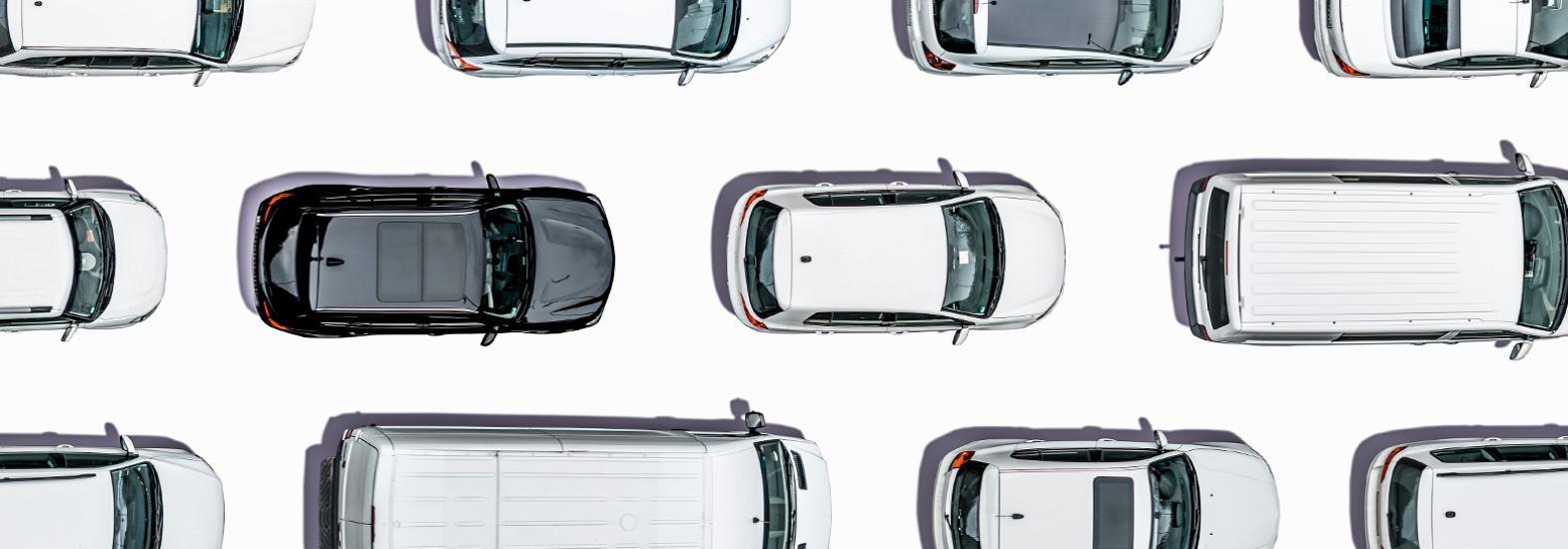5 Min Read • August 22, 2022
Hybrids: An Underdog in the EV Transition

They May Not Get Headlines, But Hybrids Could Help the Environment and EV-hesitant Shoppers
Identifying the exact moment EVs will hit a saturation point continues to spur healthy debate in boardrooms, newsrooms and the Twitterverse. In some global regions like Europe, timelines are more concrete, with governments enacting laws to speed up the process. But in the U.S., we have not seen as much pressure to artificially impact the date. That puts more weight on consumer preference. And as our new study shows, that might take time, independent of other factors like supply chains and the high price of entry.
In the meantime, other alternative powertrains, namely hybrids, could be a more significant player in the market than many believe.
Adoption and the Environment
Even before gas prices experienced their recent surge in prices, those we surveyed gravitated to the long-standing and eco-friendly hybrid powertrain as a bridge to EV ownership. Among new owners of fully electric battery-powered cars (also called BEVs), nearly half were transitioning from a hybrid vehicle.
From a media standpoint, though, hybrid technology isn’t sexy enough. Electric vehicles are capturing nearly every headline related to powertrains in the industry, and they’re routinely mentioned in climate conversations as well. But increasing hybrid adoption — especially in large trucks and SUVs — would make a significant impact in fuel consumption.
Project Drawdown, a non-profit focused on practical ways to reduce global warming, suggests that doubling the current pace of hybrid sales globally would reduce emissions by nearly three gigatons by 2050. That’s the equivalent of one year’s worth of global CO2 produced by passenger vehicles today.
No Learning Curve
Every single concern for shoppers who considered an EV but eventually purchased a traditional gas-fueled, internal combustion engine-powered (ICE) vehicle simply does not apply to hybrids. There's no learning curve to their adoption, since they operate like a traditional ICE car.

Not having a garage to plug into — a major concern for those considering EVs — is irrelevant. So are worries over the time to refuel. As for the range anxiety that comes with EVs, that becomes range abundance in a hybrid. For example, a Toyota Corolla Hybrid has an EPA-rated range of 593 miles: nearly twice that of even the best-performing EVs.
There are a number of hybrid options from the most popular brands — including Honda, Toyota and Ford — that deliver these benefits. However, there are far more automakers not embracing hybrids, including luxury brands. This suggests a huge opportunity to not only capture the large EV-resistant shopper market, but improve fleet fuel economy as well.
Importance of Cost
Among hybrids, there are several plug-in models that do a particularly effective job of fully combining the two technologies into one vehicle. However, while hybrid car prices have become almost negligible on mass market vehicles from Toyota and Ford, plug-ins have maintained significantly higher MSRP. And to hybrid shoppers, that matters.
Compared with EV shoppers, hybrid shoppers are 20% more concerned about EV sticker prices. Advocates for electric vehicles often point to the total ownership savings — which takes into account the amount saved on costly fuel — but hybrid shoppers differ. They are much more concerned about the upfront price: nearly three in four hybrid shoppers point to “cost effectiveness” (price) as a motivating factor for purchase compared with just half of EV shoppers.

Related to this is the recognition among hybrid shoppers that with a hybrid, they don’t need two vehicles. Even though the average U.S. household has more than one vehicle, the notion that an EV must be able to serve as a family’s only form of transportation looms large in adoption conversations. This has been an obstacle to EV adoption: 62% of EV shoppers agree that they will need to own a gas-powered car along with an electric one.
But when presented the same statement, only 35% of hybrid shoppers agree. That’s a good thing, too, because hybrid shoppers care more about the environment than EV shoppers: 74% name it as a motivator compared to 60% of EV shoppers, which may correspond with the hybrid’s long-established reputation as a green solution.
Where Is the Hype for Hybrids
One interesting finding in our study is that 58% of EV shoppers were at least partially motivated to consider an EV because of positive media coverage around the technology. Although it’s hard to quantify how much more coverage fully electric vehicles receive in the media compared with their hybrid kin, it’s safe to say that it’s a lot — while coverage of hybrids has been largely non-existent.
Yet when you look at the market, there are hybrids in nearly every category: from minivans to small trucks to (of course) economy cars. The most popular models from the biggest global brands are racking up robust sales. But they’re receiving barely a blip of media coverage.
Given the prospect of a lengthy EV transition ahead of us, both in the U.S. and globally, it makes sense for the benefits of hybrids to be lauded. Praise should be lavished on the OEMs developing new hybrid options alongside EVs, rather than (as has often been the case) dismissing them as backward thinking.
Remember that development cycles for new vehicles are considerably longer than for today’s smartphones, and that there are still multiple generations of vehicles that will need to be launched before the world is 100% electric. So let’s show some appreciation for the hybrid small truck, minivan and others now. With the media’s help, we’ll all be able to get to the EV adoption finish line faster.
Share This

David Thomas is director of content marketing and automotive industry analyst at CDK Global. He champions thought leadership across all platforms, connecting CDK’s vast expertise to the broader market and trends driving our industry forward. David has spent nearly 20 years in the automotive world as a product evaluator, journalist and marketer for brands like Autoblog, Cars.com, Nissan and Harley-Davidson.









